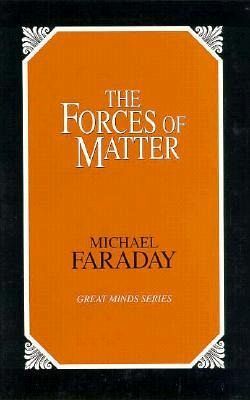
The Forces of Matter
Versandkostenfrei!
Versandfertig in über 4 Wochen
12,99 €
inkl. MwSt.
Weitere Ausgaben:

PAYBACK Punkte
6 °P sammeln!
Michael Faraday (1791-1867) was one of the world's greatest experimental philosophers and popularizers of science. These six extraordinary lectures on gravitation, cohesion, chemical affinity, heat, magnetism, and electricity were intended for young audiences. Together, they offer the reader a fascinating introduction to some of Faraday's most important work on the correlation between the physical forces of the universe.




